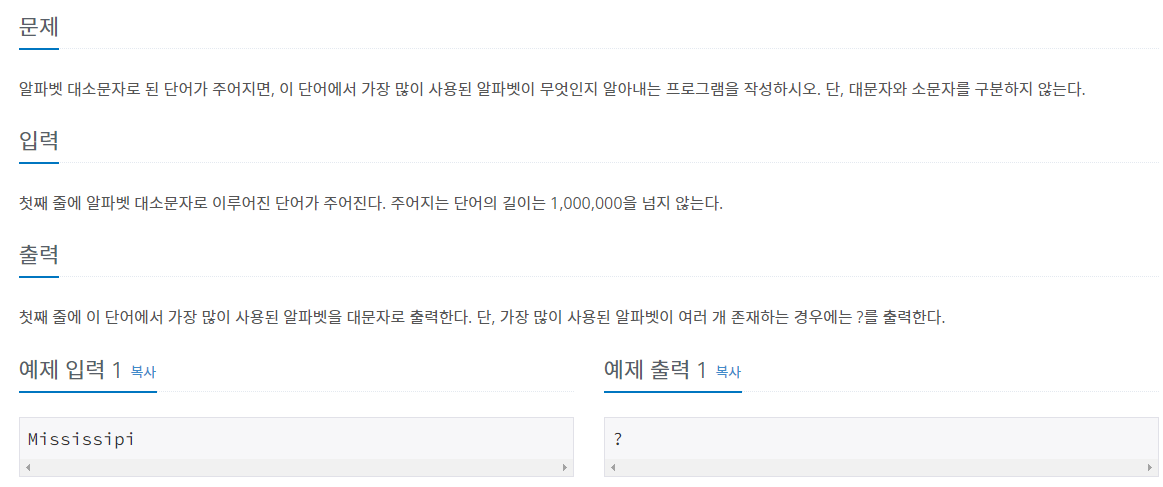
코드
1. 나의 코드
alphabet = 'ABCDEFGHIJKLMNOPQRSTUVWXYZ'
words = input().upper()
list = []
for i in alphabet:
count = 0
for j in words:
if i==j:
count += 1
list.append(count)
if list.count(max(list)) > 1:
print('?')
else:
index = list.index(max(list))
print(alphabet[index])
<풀이>
alphabet = 'ABCDEFGHIJKLMNOPQRSTUVWXYZ'
words = input().upper()먼저 알파벳 대문자를 alphabet에 넣어준다.
대문자를 출력할 것이기 때문에 words를 upper()를 이용해 대문자로 바꿔준다.
a부터 z까지의 경우를 for문을 돌린다.
count는 0으로 초기화 해주었다.
해당하는 알파벳이 words에 있을 경우 count를 +1 해준다.
count를 list에 넣는다.
list의 최댓값이 2개 이상인 경우, '?'를 출력한다.
list의 최댓값이 1개인 경우, list의 최댓값 인덱스를 구하여 가장 많이 사용된 알파벳을 출력한다.
2. 남의 코드 (set 이용)
words = input().upper()
unique_words = list(set(words))
count_list = []
for i in unique_words:
count = words.count(i)
count_list.append(count)
if count_list.count(max(count_list)) > 1:
print('?')
else:
index = count_list.index(max(count_list))
print(unique_words[index])<풀이>
입력받은 words를 upper()를 이용해 대문자로 바꿔준다.
unique_words = list(set(words))set()으로 중복을 없애 unique_words에 넣어준다.
for i in unique_words:
count = words.count(i)
count_list.append(count)unique_words에 있는 알파벳의 인덱스를 구해 count_list에 넣는다.
if count_list.count(max(count_list)) > 1:
print('?')
가장 많이 사용된 알파벳의 개수가 2 이상이면 '?'출력
else:
index = count_list.index(max(count_list))
print(unique_words[index])1개인 경우, count_list 최댓값의 인덱스를 구하여
가장 많이 사용된 알파벳을 출력한다.

